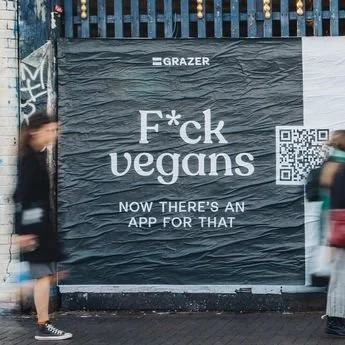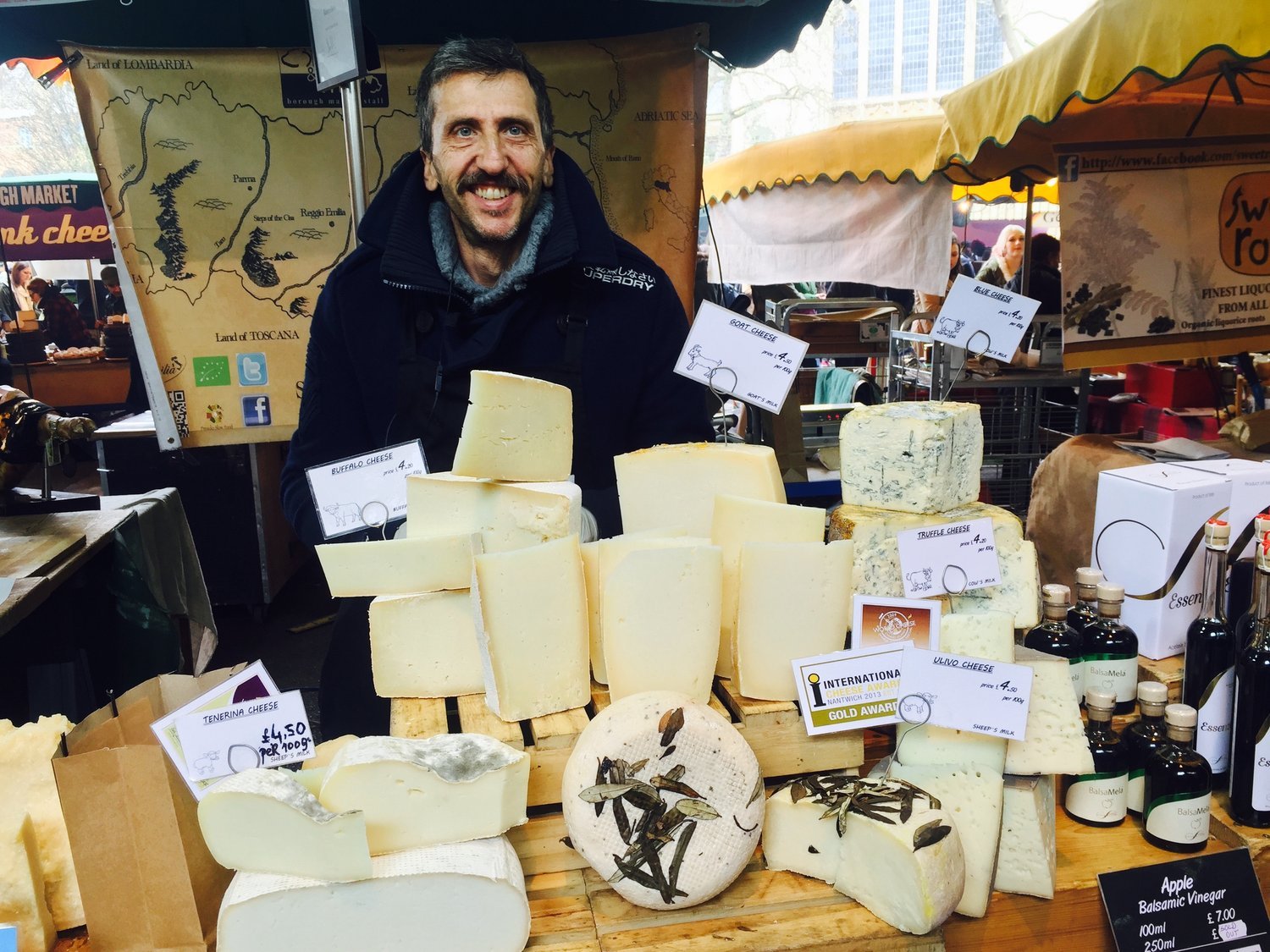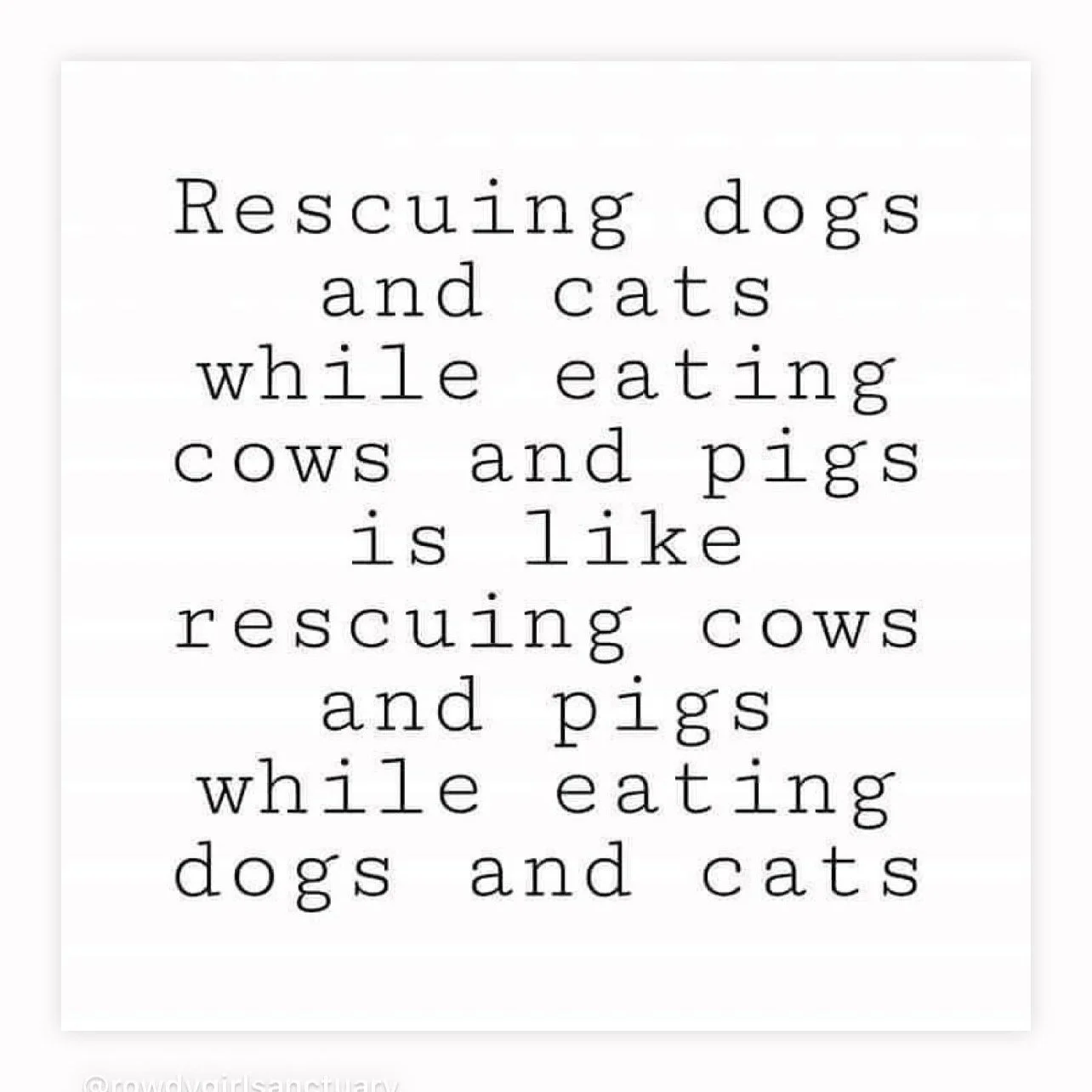Vegan Hate
Grazer have used vegan hate to their advantage!
I’ve often wondered where the hatred towards vegans comes from. I see it everywhere; media, dating apps - “As long as you’re not a vegan”, TV shows, adverts, social media and workplaces. Naturally, most vegans were not born vegan and I myself have uttered the phrase…
“I will never be vegan.”
…on more than one occasion before I made the switch.
When I ask myself why I felt like this, I know it was due to how I perceived veganism - I would equate it with something joyless, something holier-than-thou and saintly even; none of which I found I could identify with! Having been vegetarian almost all my life, I felt like that was enough of a step for doing my bit for animals and besides, no one ever hurt a cow just taking their milk.
Of course, I was so wrong with that last point. Dairy is the cruellest of them all. What other industry takes babies away from their mothers, to kill them only to then ALSO kill the mother for meat once she can’t cope with the miserable cycle of insemination, birth, grief and milking, any more?
I was living in a state of cognitive dissonance where my beliefs suited me and the pain of not knowing EXACTLY how my cheese was made wasn’t great enough to stop me from eating it. I had other reasons too for not wanting to investigate veganism - as a veggie, I was already an “other” and so didn’t want to enhance that status, particularly because I was also single, and a female boss in a male-dominated industry. So there was little “reward” but potentially plenty of discomfort down that path.
2015 - the year I cut back on eating cheese and was still in denial about the impact. I would still go and have conversations with men like this jolly looking fellow to see if they knew about vegan cheese and the answer was always “NO.” I was still believing the dairy propaganda like the poster in the background.
Cognitive Dissonance - What is it and why is it relevant here?
Google definition: the state of having inconsistent thoughts, beliefs, or attitudes, especially as relating to behavioural decisions and attitude change.
In other words, it is where you act in a way that is in conflict with your beliefs. When I thought those things, they were a result of my programming when the reality sat in stark contrast to my beliefs.
It is important to start by addressing how our beliefs are formed and acknowledging a crucial point - our beliefs can change! For example, we might experience an abusive relationship which causes us to believe that we can’t trust other people to care for us. Upon escaping that situation and getting perspective on it, we might decide that rather than not trusting anyone again, we will not trust that one individual and give everyone else a chance.
In essence, our beliefs are based on our experiences (what has happened to us), evidence (data and insights - witnessed or reported) and our knowledge base (context and education - what we feel we know to be true). We cannot simply choose what we believe - our beliefs are formed by these 3 elements.
Reward or Pain and Suffering?
When you act in conflict with your beliefs, it creates a stress reaction.
You are likely to feel uncomfortable and this can lead to mental turmoil where you can’t understand why you behaved in such a way and then feel guilty/chastise yourself for it. The problem with this is often rather than address the conflict, we will focus instead on treating the stress - through typical numbing or escapist behaviours, such as drinking, eating, smoking, scrolling, TV bingeing, etc. If the stress is ignored, it can manifest in anti-social behaviour - cue the hatred that spews within the comments section of any vegan-related posts! The reward for aligning with your beliefs is sadly totally imperceptible to you.
For me, realising the truth of the animal cruelty behind the dairy and egg industries, STILL wasn’t enough to make me switch. I reduced my consumption but was regularly eating cheese pretty much whenever I felt like it. It was only when I had a health intervention that I committed to it and called myself a vegan. Naturally, when I did that, it became a lot easier to navigate both for me and my friends and I began to discover more new foods and creative dishes.
The reason I think this subject of cognitive dissonance is so pertinent to the world right now is that it has the potential to save the world! We have been programmed to behave in ways that are against our true nature (loving and nurturing animals) and highlighting this and helping people overcome it, might just change everything for the better! Imagine a world full of compassion…



